This summer I had the exciting opportunity to keep being employed for at least two months longer by teaching the second semester of a two-part course: “German for Graduate Reading Knowledge.” The point is to teach graduate students who might have to read texts in German how to do that without having to go to all the trouble of actually teaching them German. Of course one of the many difficulties in this process is encountered in Fraktur, that extra ornate, old-style German print that the “Old English” fonts in Microsoft Word try to kind of imitate the look of in a generally more legible way. Since the words themselves aren’t any different, the main difficulty in reading Fraktur is simply recognizing the letters. So to test if my students actually were both recognizing letters and understanding sentences correctly, I assigned them the task of translating a pair of texts from the 1901 edition of L. Kurth’s Illustriertes Kochbuch. For extra credit, they were given the opportunity to demonstrate their understanding of the recipes by cooking them and documenting the process (or alternatively to press someone else into service and direct the (un)fortunate accomplice in the preparation of the food).
The two texts for this assignment were #553 “Bratwurst in Bier gekocht” and #697 “Junge Mohrrüben.” So without further ado, here are my results for the first of those.
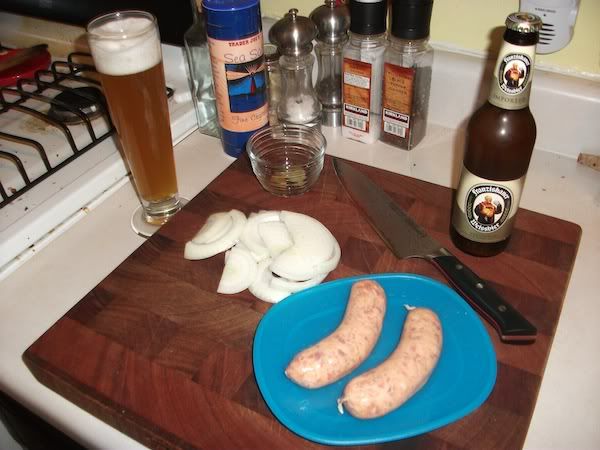
Prep for #553. The secret ingredient is having one beer to cook with and another just to drink.
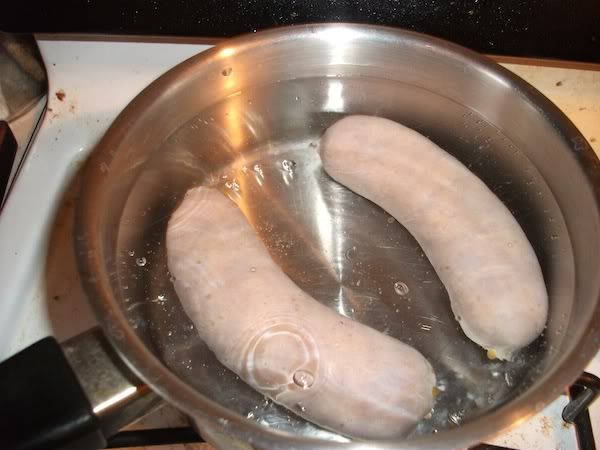
“Man legt die Bratwurst, damit sie nicht platzt, in kochendes Wasser…
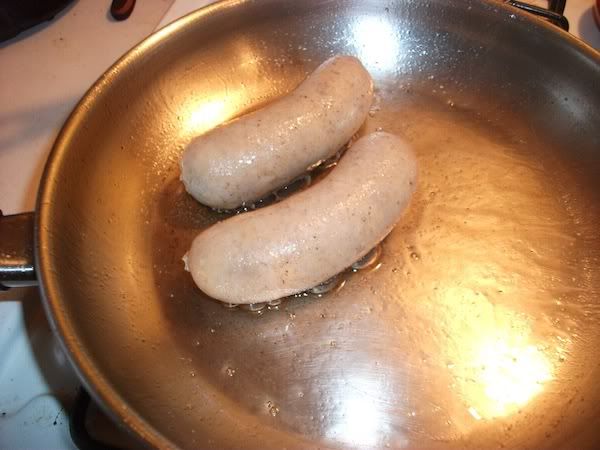
… bratet sie sodann in Butter von beiden Seiten braun…
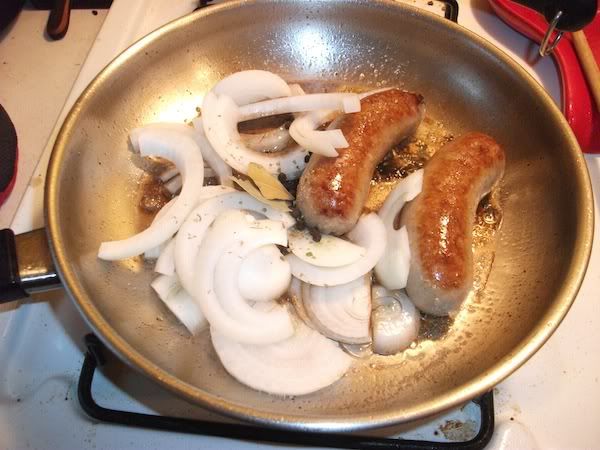
… thut Zwiebelscheiben, Pfefferkörner, ein Lorbeerblatt dazu, gießt ein wenig Weißbier unter, läßt die Wurst rasch kochen, bis das Bier sich auf dem Boden braun angesetzt.
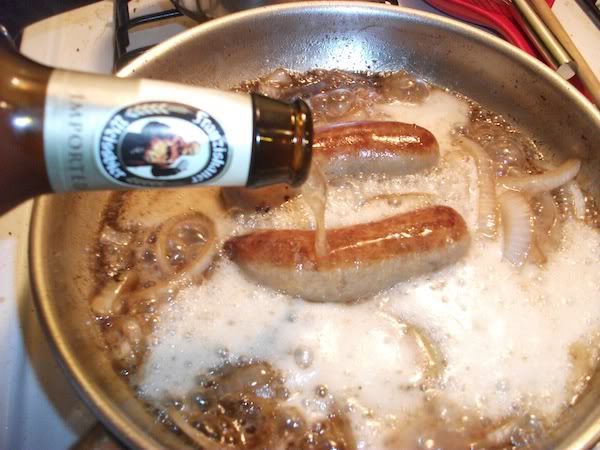
Dann gießt man so viel Weißbier dazu, daß die Wurst bedeckt ist, und läßt sie noch eine Viertelstunde kochen.
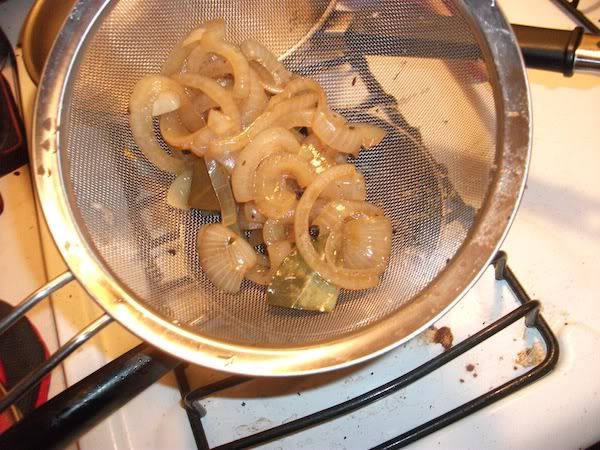
Beim Anrichten nimmt man die Wurst heraus, gießt die Brühe durch ein Sieb…
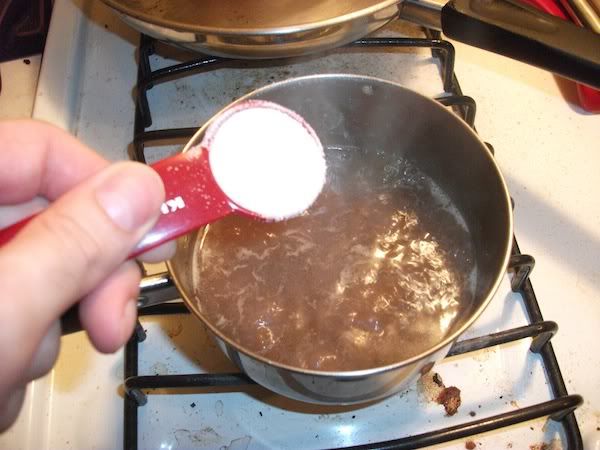
… und kocht sie mit etwas Kartoffelmehl seimig.”
Alright, now that you’re got all that down, it’s on to the next part!

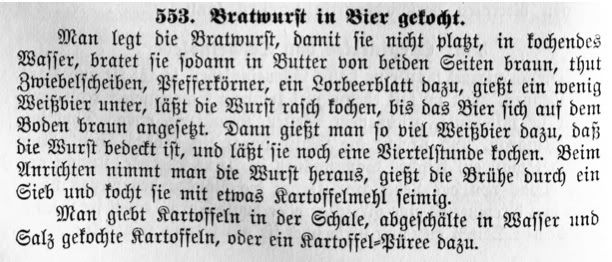
[…] Learn German by Cooking! […]
Sieht ja total lecker aus. Ich freue mich schon darauf, es zu probieren…das heißt natürlich, das kochst du mir, ich setze mich ruhig hin und warte, bis es fertig ist. Kann auch dir das Rezept vorlesen, wenn nötig. 😉
Here’s what I enjoy – running your comment through Google Translate and giggling at the grammatical transpositions that render your statement as follows: “Looks so absolutely delicious. I’m looking forward to try it…that is, of course, that you cook me, I’ll sit down quietly and wait until it’s finished. Can you even read the recipe, if necessary”
Well, you know what they say, a frog will allow itself to be boiled to death if the temperature is ratcheted up gradually. Also, I don’t think that impugning Amon’s reading skills are the way to get him to cook you a nice meal…lol.
This is absolutely delicious. Boy, I am getting hungry already. Good german
food, I must try this one day.